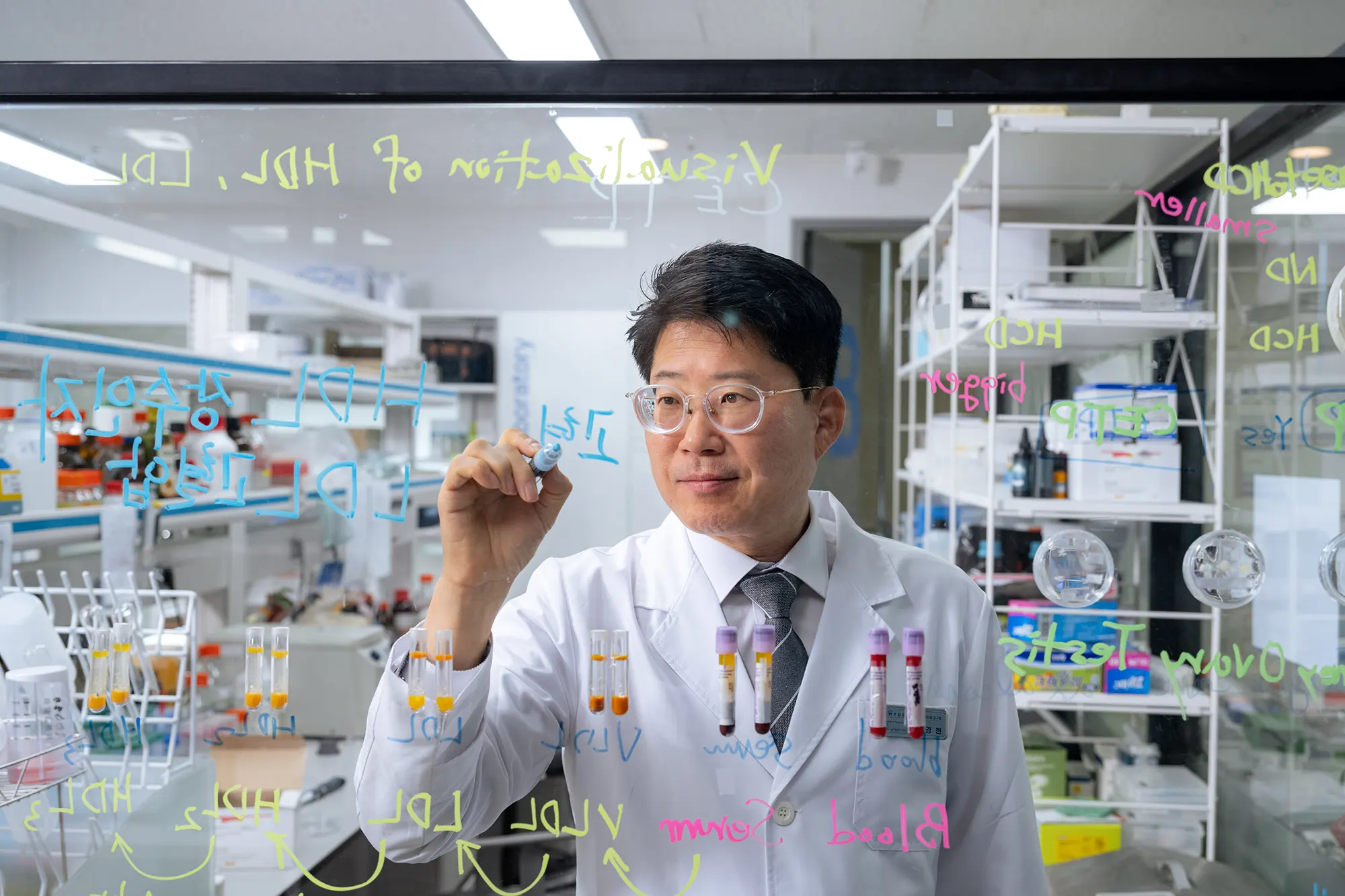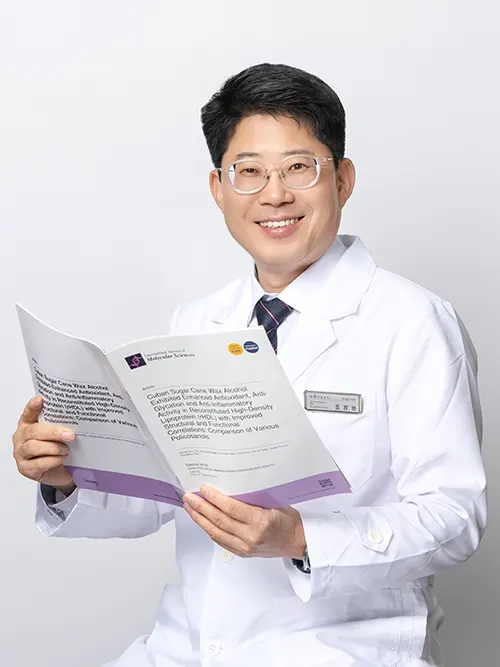
Ranked among the top 0.09%
of researchers worldwide
Greetings,
I am Kyung-Hyun Cho,
the director of the RAYDEL HDL Research Institute.
Since its founding, our institute has pursued a clear mission: to contribute to the health and well-being of humanity.
Over the past two decades, I served as a senior researcher at a government-funded institute and as a university professor, publishing numerous academic papers. Yet I constantly asked myself—how much of this research truly improves people’s lives? This question led me to believe that science should directly contribute to better ingredients, healthier products, and ultimately, a happier world. With this conviction, I partnered with RAYDEL KOREA to establish RAYDEL HDL Research Institute. The institute is dedicated to advancing HDL research, building on my lifelong focus on lipoprotein science to elevate its quality and functionality.
Founded in 2020 on a modest scale, our institute is now fully equipped to conduct a wide range of studies from clinical trials to animal models, biochemistry, and histological analysis. We are proud to be the only research facility in South Korea capable of directly visualizing HDL particles using electron microscopy.
Driven by our commitment to improving human health, RAYDEL HDL Research Institute has emerged as a leading institute for foundational lipoprotein science. We have published over 50 papers in SCI-indexed journals and registered two international and ten domestic patents over the past three years. We will continue to dedicate ourselves to advancing scientific research that improves human health and to fulfilling our role as South Korea’s only institute exclusively focused on HDL.
We sincerely appreciate your continued support.

Director of the RAYDEL HDL Research InstituteKyung-Hyun Cho, Ph.D.
Dr. Kyung-Hyun Cho has devoted his career to the in-depth study of lipoproteins. His primary research focuses on lipoprotein metabolism, particularly the structure and functions of low-density lipoproteins (LDL) and high-density lipoproteins (HDL), which are responsible for transporting cholesterol and triglycerides in the bloodstream. His work also includes the reconstitution and functional evaluation of lipoproteins.
Building on these foundations, he is actively engaged in the development of new medications and functional foods for the treatment of hypertension, hyperlipidaemia, diabetic complications, and Alzheimer’s disease by inhibiting modifications of lipoproteins such as glycation and oxidation.
Dr. Kyung-Hyun Cho graduated from the Department of Genetic Engineering at Kyungpook National University. He then completed his postdoctoral training at the University of Illinois College of Medicine at Urbana–Champaign and served as a research doctor at the Cleveland Clinic Foundation until 2002.
After returning to South Korea, he worked as a senior researcher at the Korea Research Institute of Bioscience and Biotechnology for four years. In 2005, he joined Yeungnam University as a faculty member in the Department of Biotechnology/ Medical Biotechnology, where he worked as an assistant professor, associate professor, and professor. During his tenure, he also led the Protein Sensor Laboratory and directed the BK21+ Biomedical Serum Research Team.
He is currently serving as the director of the RAYDEL HDL Research Institute, which he established within the Daegu-Gyeongbuk High-tech Medical Complex.
Over the past 33 years, Dr. Kyung-Hyun Cho has published 164 papers in SCI-level journals in the field of HDL research and filed and registered 62 domestic and international patents. He has been invited as a keynote speaker and presenter at numerous international conferences. He currently serves as a guest editor for the international journals Molecules and IJMS, overseeing special issues on HDL metabolism and function. He is also a member of the editorial boards of Atherosclerosis Plus and the International Journal of Environmental Research and Public Health (IJERPH).
